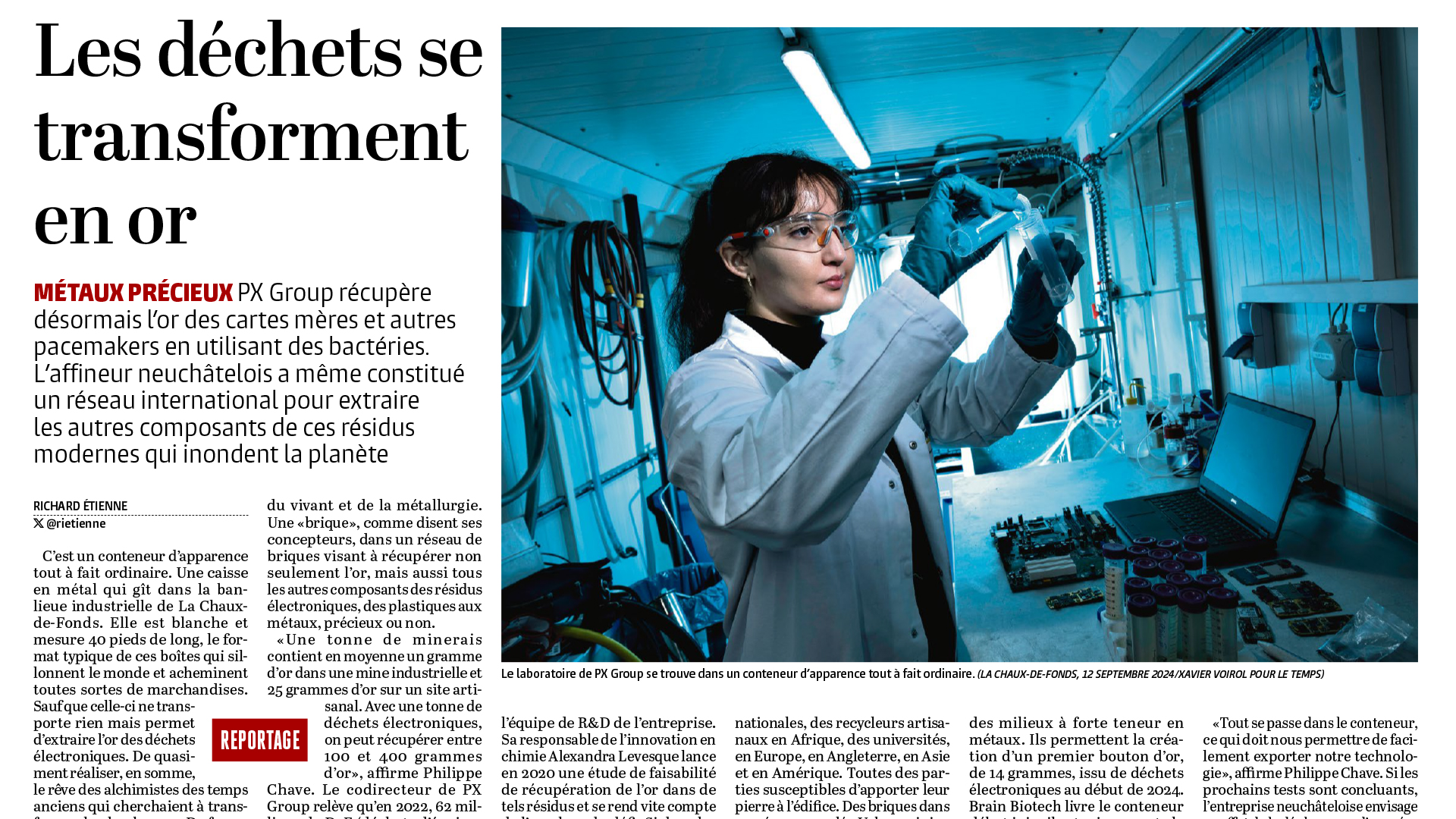
An ecological innovation from PX Group
PX Group is pleased to announce the fruition of an innovative project in partnership with a German biotech company, BRAIN Biotech. This involves technology using living micro-organisms to recover the gold contained in various forms of electronic waste such as motherboards, computer chips and pacemakers.
It all began in 2020, when our Head of Chemical Innovation, Alexandra Levesque, launched a feasibility study into recovering gold from this kind of waste. After four years of research, the development of an international network and the creation of a partnership with Brain Biotech, PX Group is proud to present its pilot laboratory, located in a container known as Biogold TM. This container houses two bioreactors, filters, pipettes, plastic tanks, pipes and, above all, bacteria that are resistant to, adaptable to and efficient in environments with a high metal content.
2024 sees the public presentation of this first stage of the project, the objective of which is to industrialise sustainable biorecycling of electronic waste. It brings together biology and metallurgy, two opposing worlds with the same common denominator. With our BioGold TM technology, we have succeeded in laying a brick in the so-called “Urban Mining Initiative” network, which is aimed at recovering not only gold, but also all the other components of electronic waste, from plastics to metals, both precious and non-precious.
How does the Biogold TM container extraction process work? Waste electrical and electronic equipment (WEEE), containing recycled metals, is ground into powder by partner companies, and then inserted into a bioreactor which can hold up to 750 litres of water at 30°C, chemicals, glucose and oxygen – an ideal environment for BRAIN Biotech’s bacteria. These bacteria release a biogenic substance enabling the gold to dissolve in a practically neutral pH environment. Filters connected to the bioreactor then separate the solid parts, particularly the plastics, from the yellowish liquids, which now contain the precious metal. The liquids are poured into tanks containing a resin that captures the gold, then finally this recovered material will be refined. The leftovers, primarily water and salts, comply with wastewater regulations, and can therefore be discharged into existing facilities, another key ecological point in the development of this project.
The first gold button, weighing 14 grams and derived from electronic waste, was created in early 2024. The container is now based in La Chaux-de-Fonds, and a second gold button was produced in July of this year on the PX Précinox site.
In an industrial mine, on average one gram of gold is extracted from one tonne of ore. This figure rises to twenty-five grams on an artisanal site. From one tonne of electronic waste, we can recover between 100 and 400 grams of gold! In 2022, 62 million tonnes of WEEE were generated worldwide, a figure that is rising by 5% a year, according to the monitoring programme “The Global E-waste Monitor 2024 – E-Waste Monitor” (ewastemonitor.info). In other words, it is the fastest-growing category of waste.
Innovation is an integral part of PX Group’s DNA. We were pioneers with the creation of our PX Impact® label, and we also aim to become pioneers in urban mining in our sector of activity.
In addition to our Newsletter on our BioGold TM project, you can also read a report from the newspaper “Le Temps“, dated 15 September 2024


